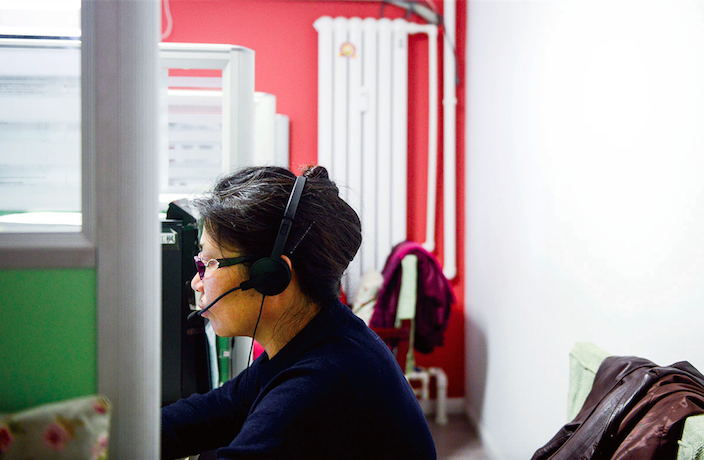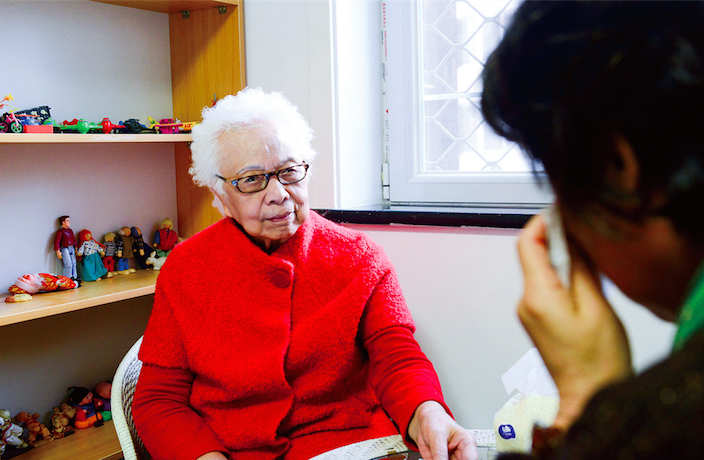China’s first law targeting domestic violence came into effect on March 1. The groundbreaking new law means that victims now have a concrete legal foundation – specific to domestic violence – in which to seek redress.
Domestic violence is a worldwide problem, which detrimentally affects individuals and families alike. In China, specifically, statistics show that over one third of women have experienced domestic violence. Results from a United Nations Population Fund (UNFPA) study, conducted in 2013, found that 39 percent of female respondents in China reported experiencing “physical and/or sexual intimate partner violence.”
Anti-domestic violence advocates regard the specialized law as a victory for human rights. It offers legal acknowledgment of a deeply ingrained social problem that, in Chinese society, has traditionally been viewed as a ‘private’ issue. The law was more than 10 years in the making, aided by rights activists’ tireless campaigning. One such organization is the Maple Women’s Psychological Counseling Center (the Center).
The Maple Center is a non-profit voluntary organization founded in 1992 by Wang Xingjuan. It was China’s first women’s hotline. Now, dozens of domestic abuse victims from around China seek help from the Maple Center every day, either via its hotline or through face-to-face sessions. Located in Xicheng, Beijing, the center assists callers by talking through available options, such as separation or couples counseling. It also conducts research on domestic violence and provides advocacy for victims.

The Center’s core value is: “To influence life with life.” The advantages of the hotline are that it is unrestricted by space, convenient and free of charge. Any woman can contact the hotline for free professional counseling with volunteers who have professional psychological training and nationally recognized certificates.
Founder Wang Xingjuan, tells us during a visit: “The law is a good start because abused women can now seek [legal] justice. The law has a lot of bright spots.”
Wang anticipates that the law will help change society’s attitudes toward abuse. She shares, “Women would go to the police and the police would say: ‘It’s a family matter so it doesn’t concern us.’ But now the government has made it so that people have to care," Wang says. "It’s not [just] a ‘family problem’ anymore; it’s a national problem.”
There are many organizations in China that focus on protecting women’s rights. These include anti-domestic violence group Equality, co-founded by famous rights’ activist Feng Yuan; Rural Women, an organization helping rural women establish independent and equal lives; and Media Monitor for Women Network, an NGO based in Beijing.
The range of organizations is testament to the fact that domestic violence plagues families across all sectors of society. Now that the anti-domestic violence law is in effect, it’s more pertinent than ever that women in every city and region have access to organizations promoting and advocating women’s rights.
While many of these groups, such as the abovementioned, can be found in Beijing and rural areas, there seems to be less of a women’s rights non-profit presence in Shanghai. We hope that this changes in the future, as it is important for support network to be available, should women need help. As the law sends the unequivocal message that domestic violence is unacceptable behavior in Chinese (or any) society, it is likely that more women will come forward in support of this new legislation.
And for them, places like the Maple Center are just one phone call away.
The Domestic Violence Law can be read online at www.news.xinhuanet.com/legal/2015-12/27/c_128571791.htm (Chinese) or www.chinalawtranslate.com (English; search for ‘domestic violence law’). For further information about the Maple Center visit www.mapleonline.org or call the center’s anti-domestic violence hotline Mon-Fri 1-5pm (10 64073800; 10 64033383; 10 68333388). To report an instance of domestic violence in Shanghai call 110 or visit your local police station.


















